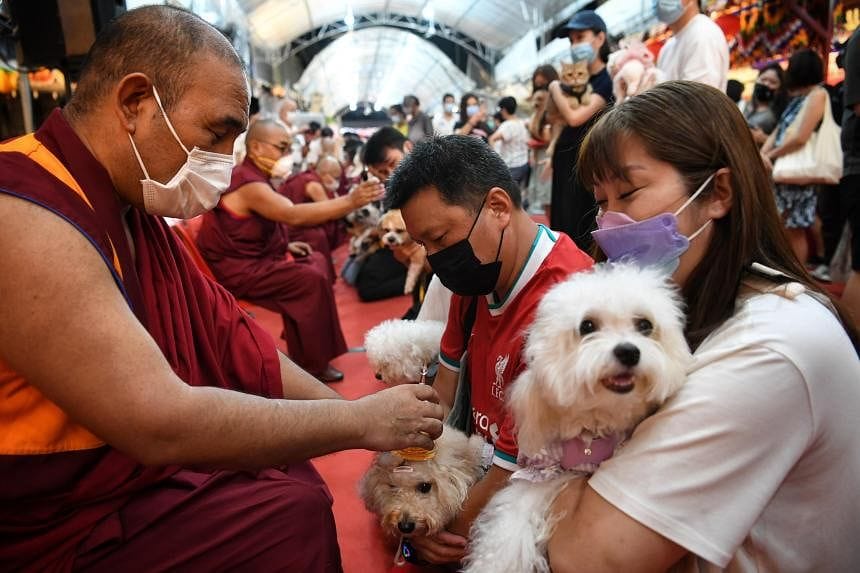Few animals released into wild on Vesak Day, as Buddhist groups advise devotees against it

Source: The Straits Times
Author: Ariel Yu
SINGAPORE - The tradition of releasing animals into the wild on Vesak Day as an act of compassion is becoming less common among Buddhists, as many Buddhist organisations advise against it.
Only three cases of releasing animals into the wild were reported each year from 2019 to 2023, according to National Parks Board (NParks), which continues to encourage the public to refrain from the practice. Offenders may be fined up to $5,000 under the Wildlife Act.
Advocacy group Animal Concerns Research and Education Society (Acres) also has had no reports of animals being released to the wild since 2019. Previous to that, it would get five or six reports a year, though it noted that most are not reported.
"We are grateful for the efforts of NParks' Operation No Release campaign, animal welfare groups and fellow nature groups for bringing about the awareness of the harms of releasing animals into the wild to the public, that has resulted in the decrease of the number of cases over the years," said a spokeswoman from Acres.
In the run-up to Vesak Day each year since 2006, NParks has carried out Operation No Release, despatching officers and volunteers to parks, nature areas, reservoirs and waterways to remind people not to release animals into the wild.
"Releasing animals into the wild harms them and our ecosystem. These animals will find it difficult to fend for themselves and are unlikely to survive in their new, unfamiliar surroundings," said Mr Lim Liang Jim, group director of conservation at NParks.
The few that are able to adapt to the new environment may disrupt the ecological balance of Singapore's natural habitats by competing with native species for resources, he added.
Vesak Day holds particular significance for Buddhists, as they believe that the merit generated from good works done on this holy day will be amplified.
On top of chanting mantras and sharing vegetarian meals, devotees in the past released caged birds and animals as an act of compassion.
In recent times, Buddhist organisations such as Thekchen Choling have been encouraging devotees to advocate for animal welfare in other ways, such as adopting a vegetarian or vegan diet, doing animal rescue work and supporting animal shelters.
Thekchen Choling highlighted in a blog post on its website that the act of releasing animals into the wild is done with the good intention of returning them to their natural habitat.
But it also said that the likelihood of the animals adapting to or surviving in a new environment is low, and that non-native species released into a new ecosystem can become invasive, harming native wildlife and throwing the ecosystem off balance.
Mr Vincent Kessler, chairman of Thekchen Choling Singapore's Vesak Day organising committee, said: "In the practice of animal liberation, often times beings that are intended for slaughter are bought and saved from certain death. These situations are no longer common in Singapore and as such we have seen the need to evolve how we benefit the animal realm."
Since 2022, Thekchen Choling has held an annual blessing night for animals on the eve of Vesak Day at its temple in Beatty Lane.
"This year's event saw more than 1,000 visitors and their pets, with queues so long that we had to extend the closing of the event," added Mr Kessler.
